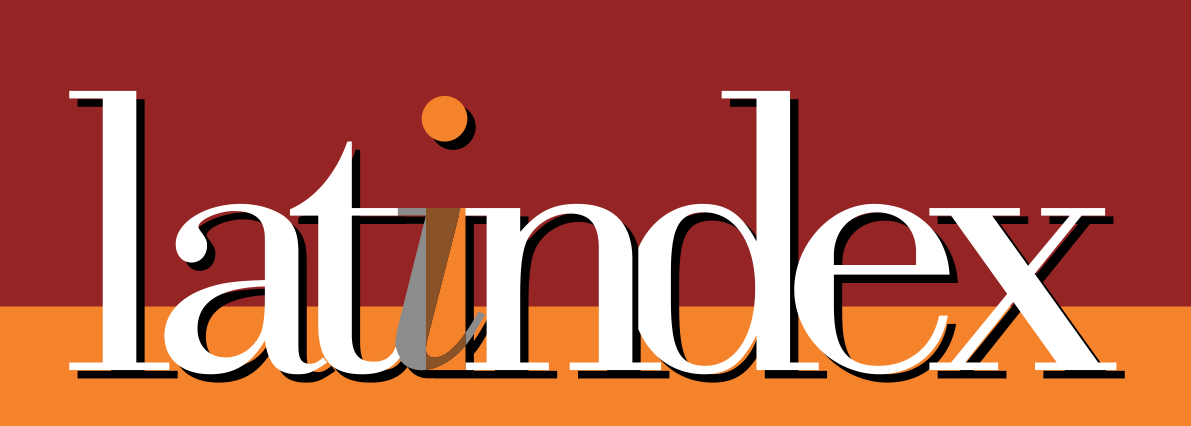Incidencia del Burnout académico y compromiso académico en la inteligencia emocional en estudiantes de una universidad nacional en Cajamarca -2024
DOI:
https://doi.org/10.61286/e-rms.v2i.102Keywords:
Academic burnout, academic engagement, emotional intelligence, stress, preventionAbstract
The objective of the study was to determine the incidence of academic burnout and academic engagement on the emotional intelligence of students at a national university in Cajamarca, in 2024. A quantitative approach with a non-experimental correlational design was used, applying three standardized tests: the Maslach Burnout Inventory - Student Survey (MBISS), the Utrecht Academic Engagement Scale (UWES-S) and the TMMS-24 Emotional Intelligence questionnaire, to 383 students. The results showed a positive relationship between the variables and the emotional attention dimension, with a p = 0.000 and r = 0.886. A significant correlation was also evident between the independent variables and the emotional clarity dimension (p = 0.000; r = 0.976), as well as between burnout and academic engagement in relation to the emotional repair dimension (p = 0.000; r = 0.903). These findings indicate a strong connection between the variables, suggesting that burnout and academic engagement significantly influence students' emotional intelligence. In conclusion, it is established that both factors have a positive and significant impact on emotional intelligence, explaining 90% of the variance, which highlights their importance in emotional development in the academic context.
Downloads
References
Amador, Á. D., Palencia, A. R., & Saldaña, R. M. E. G. (2019). Engagement académico. Educación y Salud Boletín Científico Instituto de Ciencias de la Salud Universidad Autónoma del Estado de Hidalgo, 8(15), 71-73. https://doi.org/10.29057/icsa.v8i15.4907
Ardiles, R., Alfaro, P., Moya, M., Leyton, C., Rojas, P., & Videla, J. (2020). La inteligencia emocional como factor amortiguador del burnout académico y potenciador del engagement académico. 2(1), 53-83. https://doi.org/10.54802/r.v2.n1.2020.10
Ato, M., López, J., & Benavente, A. (2013). Un sistema de clasificación de los diseños de investigación en psicología. 29(3), 1038-1059. https://www.redalyc.org/articulo.oa?id=16728244043
Avecillas, J., Mejía, I., Contreras, J., & Quintero, Á. (2021). Burnout académico. Factores influyentes en estudiantes de enfermería. Revista Eugenio Espejo, 15(2), 57-67. https://doi.org/10.37135/ee.04.11.08
Barriga, L., Bedoya, F., Goicochea, J., Heredia, G., Irigoin, U., & Arévalo, D. (2023). Burnout Académico en Universidades Latinoamericanas. Mar Caribe de Josefrank Pernalete Lugo. https://hcommons.org/deposits/item/hc:59189/
Brackett, M., Bailey, C., Hoffmann, J., & Simmons, D. (2019). RULER: A Theory-Driven, Systemic Approach to Social, Emotional, and Academic Learning. Educational Psychologist, 54(3), 144-161. https://doi.org/10.1080/00461520.2019.1614447
Carrasco, S. (2019). Metodología de la investigación. San Marcos.
Cazorla, E., Zegarra, J., Soto, F., & Castillo, R. (2023). Prevalencia de problemas de salud mental en estudiantes universitarios del sur del Perú. Cuadernos de Neuropsicología, 17(1), 50-57. https://dialnet.unirioja.es/servlet/articulo?codigo=9223921
Chui, H., Valdivia, M., Valdivia, M., Pérez, K., & Roque, E. (2023). Síndrome de burnout en estudiantes universitarios durante la pandemia por el coronavirus. Horizontes. Revista de Investigación en Ciencias de la Educación, 7(28), 784-792. https://doi.org/10.33996/revistahorizontes.v7i28.554
Correa, L. E., Loayza, J. A., Vargas, M., Huamán, M. O., Roldán, L., & Pérez, M. (2020). Adaptación y validación de un cuestionario para medir burnout académico en estudiantes de medicina de la universidad Ricardo Palma. Revista de la Facultad de Medicina Humana, 19(1), 64-73. https://inicib.urp.edu.pe/rfmh/vol19/iss1/9/
Estrada, E., Gallegos, N., & Mamani, H. (2021). Burnout académico en estudiantes universitarios peruanos. Apuntes Universitarios, 11(2), 48-62. https://doi.org/10.17162/au.v11i2.631
Fernández, P., & Cabello, R. (2021). La inteligencia emocional como fundamento de la educación emocional. Revista Internacional de Educación Emocional y Bienestar (SSN electrónico: en trámite), Vol. 1, Núm. 1, enero-junio (2021), pp. 31-46, 1(1), 31-46. https://ri.ibero.mx/handle/ibero/6043
Fidias, A. (2012). El proyecto de investigación. Introducción a la metodología científica. Epistem.
Hernández, R., & Mendoza, C. (2018). Metodología de la Investigación: Las Rutas Cuantitativa, Cualitativa y Mixta. McGRAW-Hill Interamericana Editores, S.A.
Kim, B., Jee, S., Lee, J., An, S., & Lee, S. M. (2018). Relationships between social support and student burnout: A meta-analytic approach. Stress and Health: Journal of the International Society for the Investigation of Stress, 34(1), 127-134. https://doi.org/10.1002/smi.2771
Liébana, C., Fernández, M. E., Vázquez, A. M., López, A. I., & Rodríguez-Borrego, M. A. (2020). Burnout y engagement en estudiantes universitarios de enfermería. Enfermería Global, 17(50), 131-152. https://doi.org/10.6018/eglobal.17.2.268831
Ministerio de Educación. (2023). Noticias. https://juventud.gob.pe/2023/06/el-32-3-de-jovenes-de-15-a-29-anos-presentaron-algun-problema-de-salud-mental/
Moreno, J., Ochoa, J. J., López, I., Alférez, M., Gómez-Guzmán, M., López, S., & Diaz, J. (2020). Lockdown, Emotional Intelligence, Academic Engagement and Burnout in Pharmacy Students during the Quarantine. Pharmacy, 8(4), 194. https://doi.org/10.3390/pharmacy8040194
Organización Mundial de la Salud. (2022). La OMS y la OIT piden nuevas medidas para abordar los problemas de salud mental en el trabajo. https://www.who.int/es/news/item/28-09-2022-who-and-ilo-call-for-new-measures-to-tackle-mental-health-issues-at-work
Pérez, J., Quispe, J., & Chamorro, Y. Y. T. (2020). Propiedades psicométricas de la escala de Inteligencia Emocional TMMS-24 en adultos de Lima Metropolitana, 2020. PsiqueMag, 9(2), 60-68. https://doi.org/10.18050/psiquemag.v9i2.2657
Romano, L., Tang, X., Hietajärvi, L., Salmela, K., & Fiorilli, C. (2020). Students’ Trait Emotional Intelligence and Perceived Teacher Emotional Support in Preventing Burnout: The Moderating Role of Academic Anxiety. International Journal of Environmental Research and Public Health, 17(13), 4771. https://doi.org/10.3390/ijerph17134771
Soriano, J., & Jiménez, D. (2023). La influencia de la inteligencia emocional sobre el síndrome burnout: Una revisión sistemática. Revista Estudios Psicológicos, 3(2), 19-34. https://doi.org/10.35622/j.rep.2023.02.002
Tacca, D. R., Hernández, L., Alva, M. A., & Romero, E. (2021). Propiedades psicométricas de una escala de compromiso académico en estudiantes universitarios peruanos. Revista de Investigación Psicológica, 25, 11-24. http://www.scielo.org.bo/scielo.php?script=sci_arttext&pid=S2223-30322021000100003
Universidad César Vallejo. (2020). Resolución de consejo universitario N° 0262-2020/UCV. https://www.studocu.com/pe/document/universidad-cesar-vallejo/ingenieria-civil/rcun00262-2020-ucv-aprueba-la-actualizacion-del-codigo-etica-en-investigacion/27491999
Usán, P., Salavera, C., & Mejías, J. (2020). Relaciones entre la inteligencia emocional, el burnout académico y el rendimiento en adolescentes escolares. CES Psicología, 13(1), 125-139. https://doi.org/10.21615/cesp.13.1.8
Ye, Y., Huang, X., & Liu, Y. (2021). Social Support and Academic Burnout Among University Students: A Moderated Mediation Model. Psychology Research and Behavior Management, 14(4), 335-344. https://doi.org/10.2147/PRBM.S300797

Published
How to Cite
Issue
Section
License
Copyright (c) 2024 Jesica Pamela Huamán Murillo

This work is licensed under a Creative Commons Attribution-NonCommercial-NoDerivatives 4.0 International License.
Las publicaciones en acceso abierto de e-RMS están protegidas por derechos reservados y se rigen por la Licencia Pública Creative Commons Attribution-NonCommercial-NoDerivatives 4.0 International (CC BY-NC-ND 4.0). Se permite el uso no comercial de este material, con atribuciones al autor. No se permiten derivados de esta versión.













